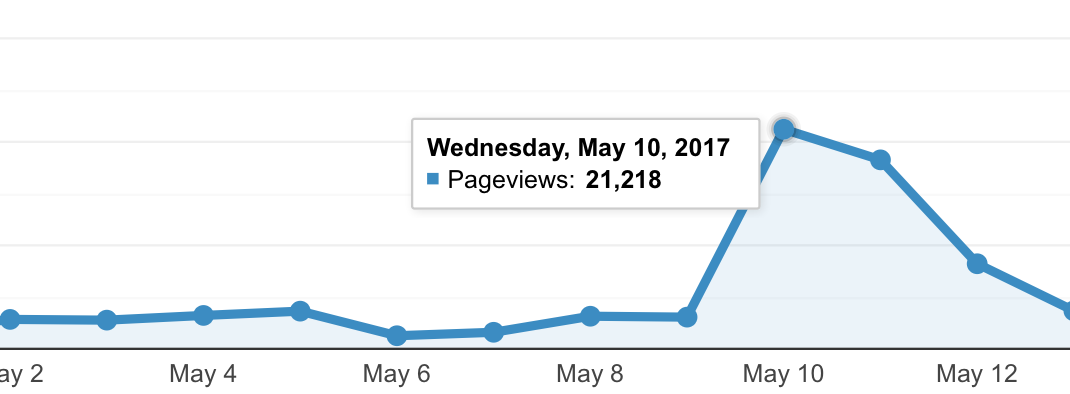🚀 Getting Over the Fear of Launching
What if it has bugs? What if it sucks? What if they think I’m a fraud? 😟
My good friend Nick is getting ready to launch 30hourjobs, which got me thinking about the topic. Actually, dreading is a better word.
Every time I’m about to launch something into the world, I get terrified. After launching dozens of apps and projects I can honestly say, it never gets easier. If anything, the tremendous virality of social media makes it scarier than ever.
Imagine, your hard work, exposed to millions of people, within minutes. You’d be traumatized for life once the world realized it sucked.
Eventually, you get over it. You muscle-up enough courage to put your creation out there. To be used, criticized, broken, copied, stolen, or worse. Forgotten.
Even though it doesn’t get easier, there are a few strategies I’ve come up with to help convince myself—and others, occasionally—to launch, and I’m excited to share them with you.
There will always be a better time
Let’s use Nick’s project as an example. He’s launching tomorrow – Monday, January 6th. Is that really the best day to launch? What about the remaining tasks on his to-do list? Besides, people are probably still on holiday vacation and won’t be near a computer. And, everyone knows that Monday is one of the lowest-traffic days of the week. Right?
Those are are all understandable concerns. Wouldn’t you want to pick the day that ensures the best odds for success? Surprisingly, the answer is no.
Sure, there are a few days of the year that should be avoided—weekends and holidays are the most common—but the difference between Monday and Tuesday? Forget about it.
There are so many variables that could make one day better than another. It’s impossible to predict what will happen, and those small differences won’t matter in the long run. Just pick a day that seems good and go for it. The sooner the better.
That brings met to the next point.
No one will remember anyway
Launch day feels extremely important. The most important day of your life, perhaps. But it’s simply not true.
It only feels important because you’ve put in so much effort, leaving you feeling like it’ll be all for nothing if the launch goes poorly. Also, not true.
Think for a second. Can you remember any company launches, period? Probably not. I can’t even remember my own. 😆

A “successful” launch day may give a nice boost in traffic, but the truth is that only about 1% of people who see the news will convert to long-lasting users. Places like Hacker News, Reddit, and Product Hunt give great exposure and can definitely boost your ego, but just realize that they likely don’t overlap much with your target audience. Results from these communities should be taken with a grain of salt.
Any amount of feedback is a success
Working on a product prior to launching is like painting with the lights off; you have no way of knowing if it looks good. So… turn on the damn lights! 💡
There’s no better way to get feedback than from real people who actually use your creation, especially if you’re charging money—there’s something about asking people to pay for things that brings out their inner critic.
Feedback is essential for success because it’s the only way to figure out how to improve. Even if a single person gives you feedback on launch day, it’s a win, and it’s yet another reason to launch sooner rather than later. Take any feedback you get, use it to make adjustments, and keep pushing forward. Small improvements over time are what make a product successful, not marketing.
And finally, I’ve saved the worst for last. Buckle up for this one.
Haters aren’t necessarily a bad thing
Dealing with negative criticism is the worst part of sharing online. The internet is full of people who simply want to complain or put others down. Unfortunately, avoiding this is out of your control, so focus on something you can control: your reaction.
It sounds a bit silly to say but even the most negative feedback can be useful, but it might take some creative reasoning to find the meaning.
Here’s a comment someone left on Reddit recently regarding a blog post of mine. It’s not that bad but it’s the only example I could remember.
Why in Earth do you need to have a local server running to edit a static site? I thought a static site just meant editing plain old HTML files. Do you not have a text editor on your computer or something?
– Angry Redditor
A few years ago, reading this would have really affected me. It would have made me feel stupid for publishing the post and less likely to share in the future. But now, after learning to view things through a filter I think huh, they’re right, I should clarify what I meant.
Everyone makes mistakes, and there’s always room for improvement. Do your best to find value in all types of feedback and keep improving. There’s no better way to shove it in an angry commentor’s face than to thank them kindly and continue towards success. ❤️